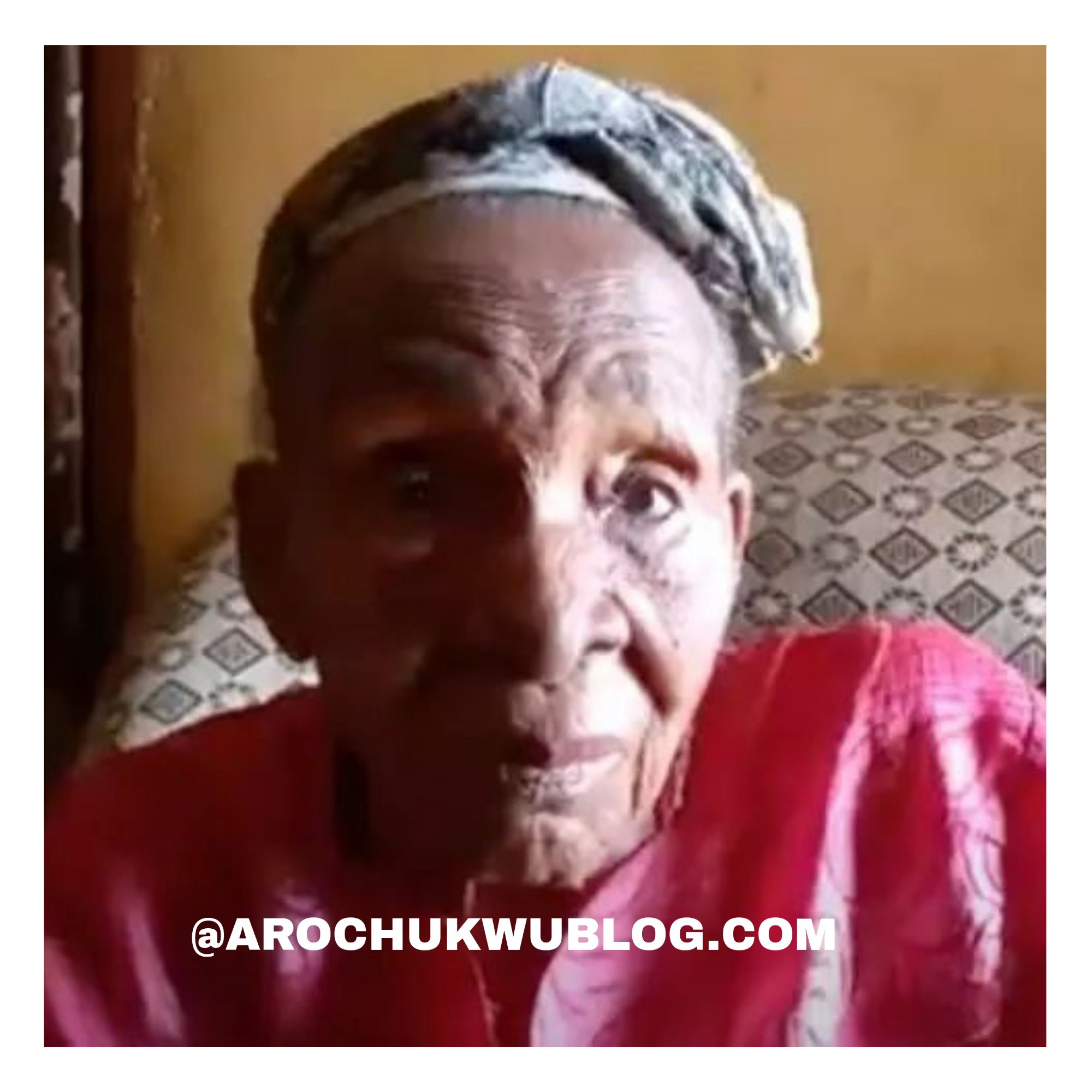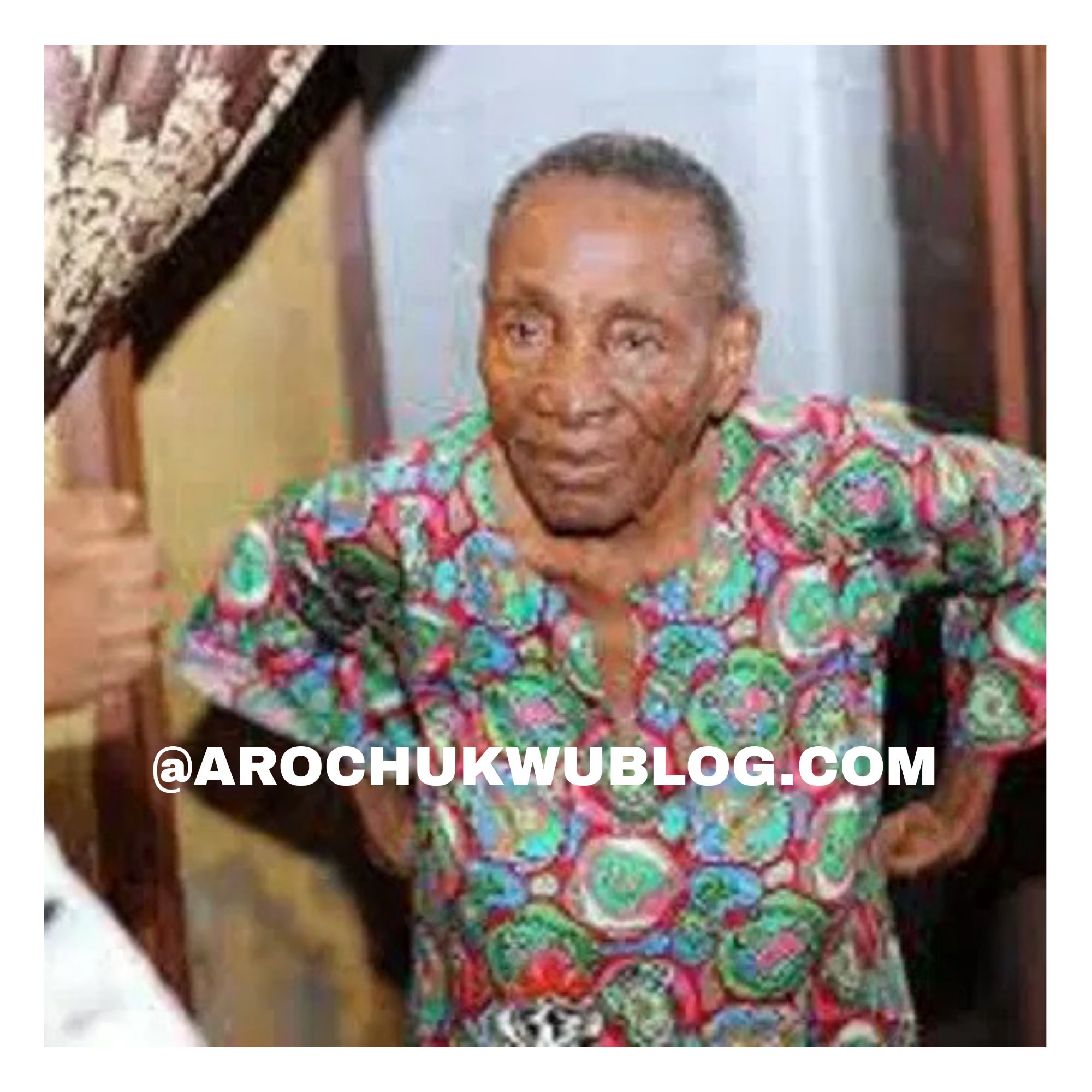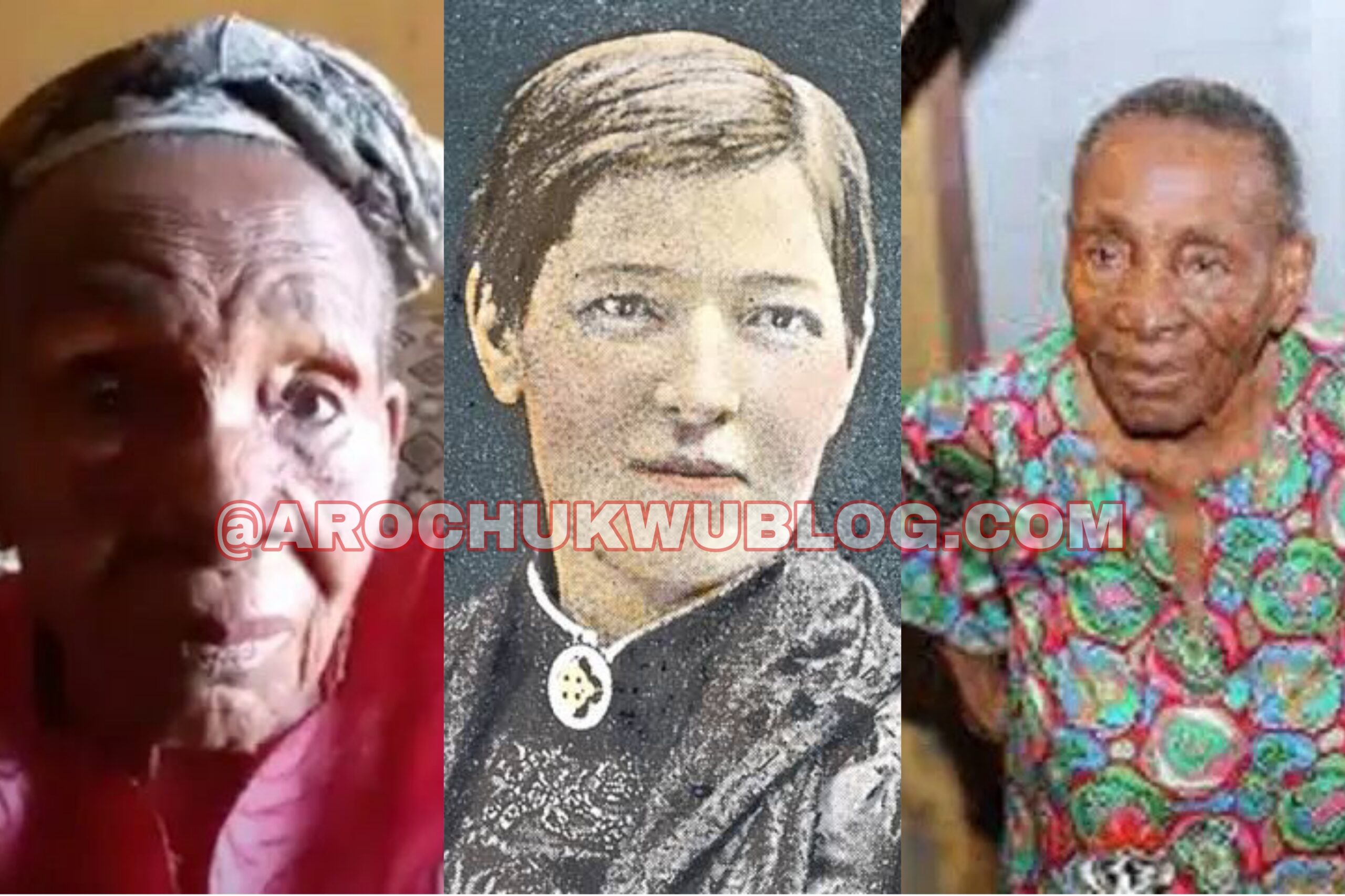Last Twin Rescued by Mary Slessor Dies at 115 in Arochukwu
According to information made available to Aro Okeigbo Blog, Madam Malinda Mgbafor Okereke, widely recognized as the last surviving twin rescued by the renowned Scottish missionary, Mary Slessor, has passed away at the age of 115. Her death was confirmed by her only surviving son, Bishop Okechukwu Okereke, in a statement released to the News Agency of Nigeria (NAN) on Thursday in Umuahia.

Fondly called “Mama Nsu Bekee”—a reference to her fluency in English—Madam Okereke died peacefully on March 5, following a brief illness.
She was born around the year 1800 in Obinagu, Amasu Village, Arochukwu, alongside her twin sister, Mgbokwo, during a time when twin births were stigmatized and considered abominable in Arochukwu and parts of the Lower Cross River region. Such children were often condemned to death or abandoned in the so-called “evil forest” until Mary Slessor’s arrival in 1876, when she launched a relentless campaign to end the practice.
Family records indicate that Mary Slessor and her missionary team were present at the twins’ birth and took an active role in their upbringing. The twins were adopted and raised under Slessor’s care, eventually receiving formal education at Mary Slessor Primary School (now Mary Slessor Secondary Technical School) in Arochukwu. Their exposure to Western education, particularly the English language, earned Madam Okereke her enduring nickname.

Bishop Okereke described his mother as a remarkable woman who remained mentally alert, physically strong, and joyfully active until her final days. Known for her graceful appearance and vibrant spirit, she leaves behind a legacy of resilience and transformation.
She is survived by one son, several grandchildren, great-grandchildren, and extended family members. During her lifetime, she had three children—two sons and a daughter.
Madam Malinda Mgbafor Okereke’s life symbolizes the profound influence of Mary Slessor’s humanitarian work, which not only challenged and abolished destructive cultural practices but also laid the foundation for education and empowerment in Arochukwu and beyond.

